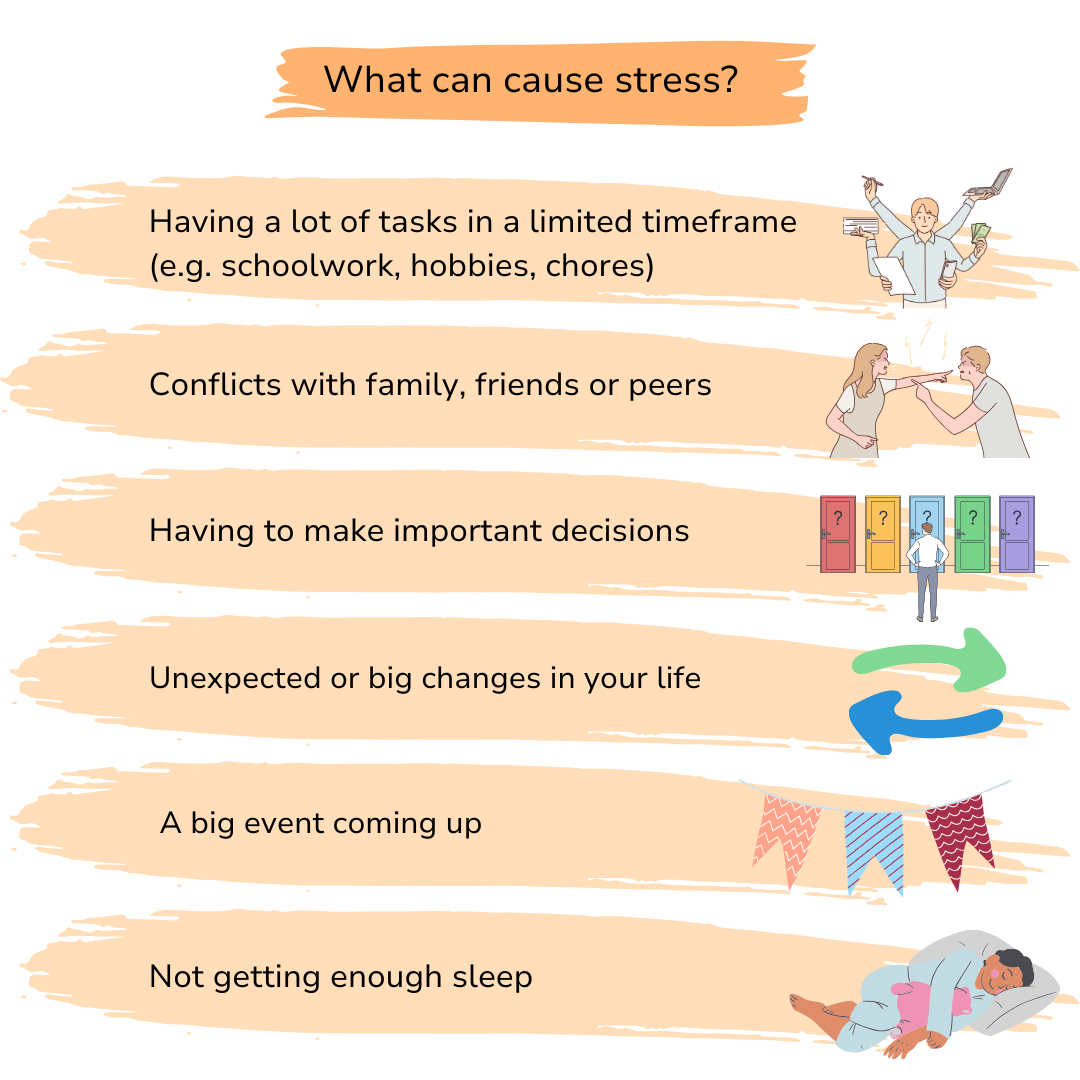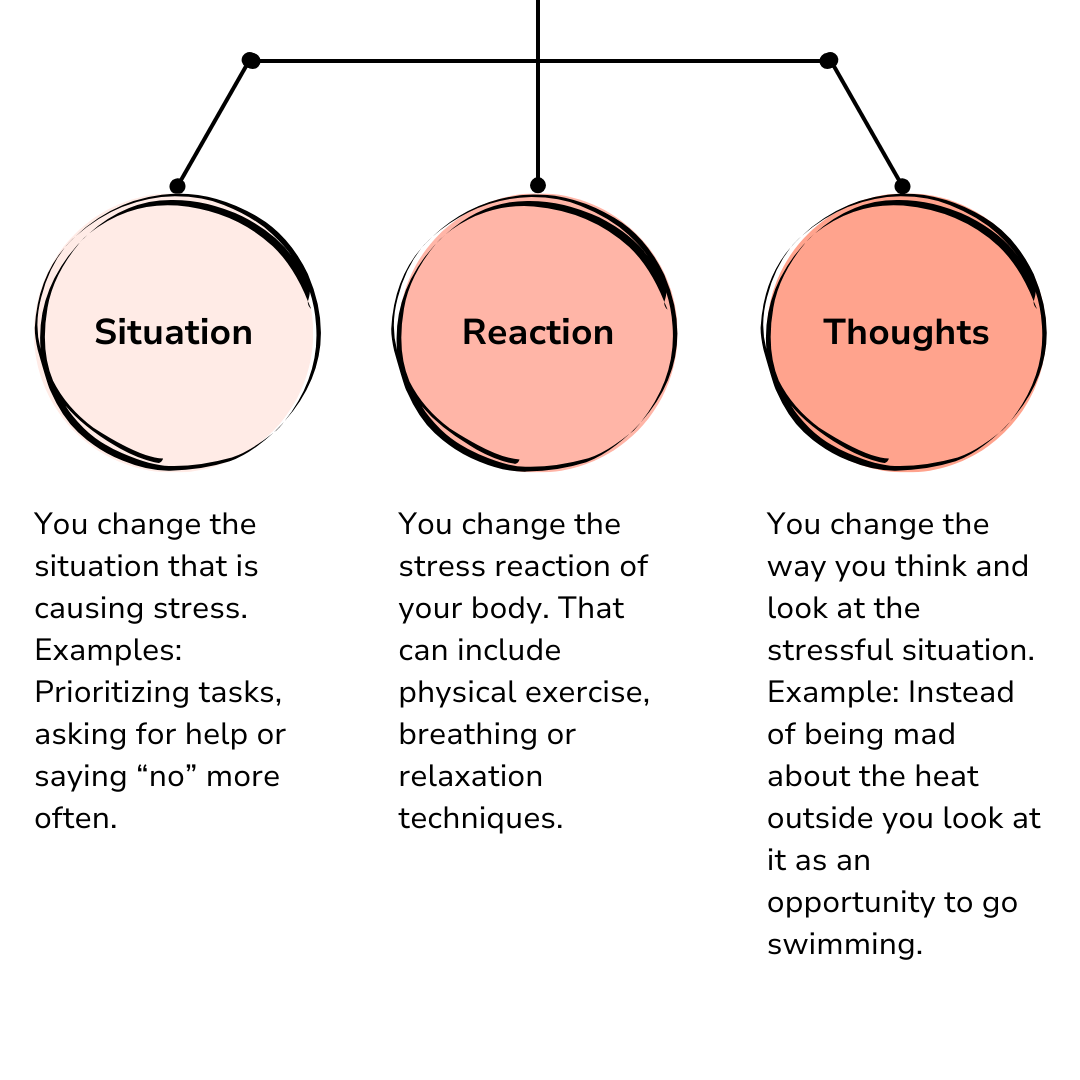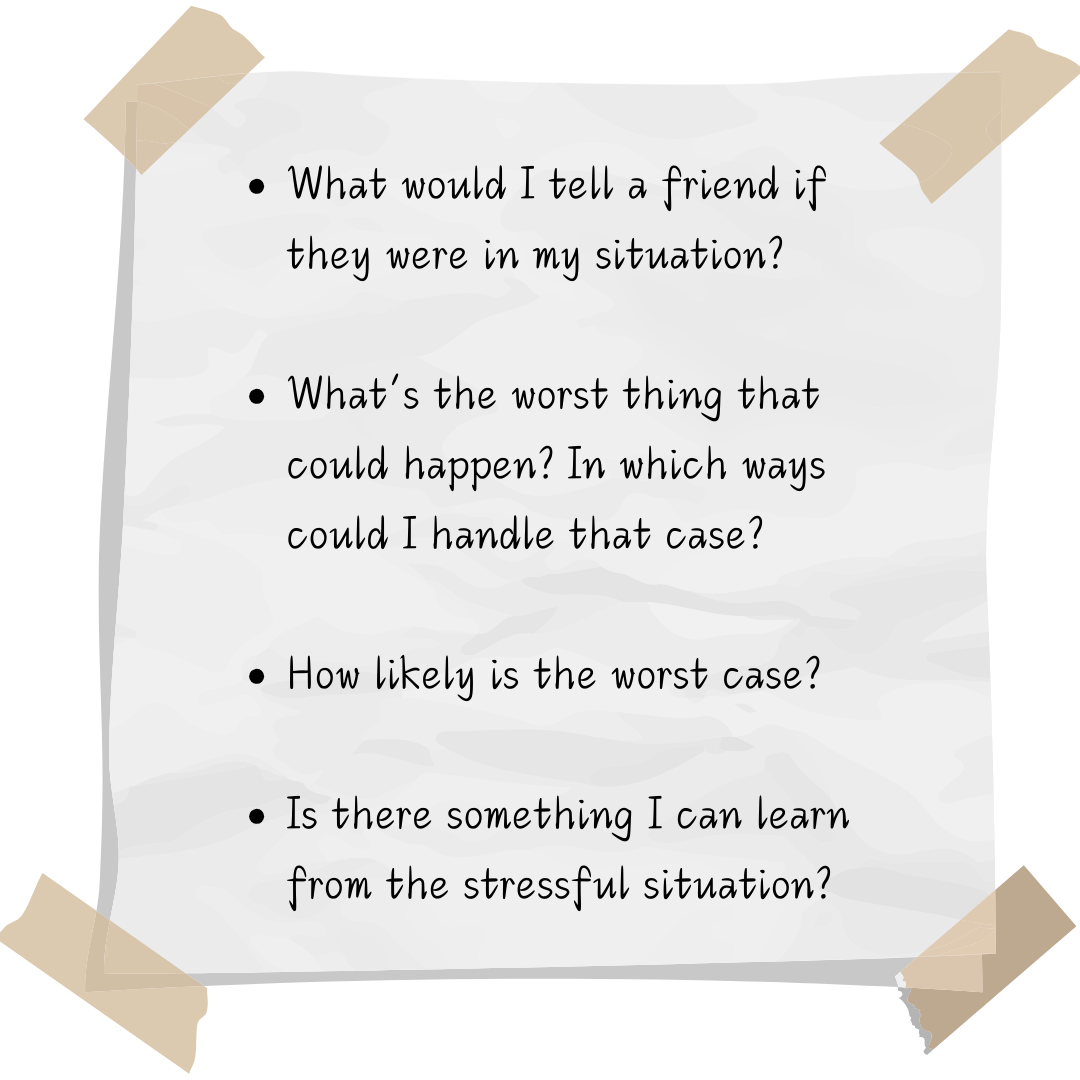Stressed out - And now?

- Different types of stress and its causes
- How to reduce stress
You want to learn how to deal with stress?
Different types of stress and its causes

Did you know? Stress isn’t always a bad thing.
A little bit of stress can be positive, as it pushes you to be more focused and productive. But there is a difference between acute (= short-term) and chronic (= long-term) stress. Chronic stress can be a risk for your mental, but also your physical health.
How can you reduce stress?

Changing your thoughts
Of course, you can’t just empty your head and get rid of negative thoughts. But it can help to identify negative thoughts you may have in order to change them.
Negative thoughts can include things like:
- “I must” sentences
- Thinking it’s impossible to take a break and relax
- Putting a lot of pressure on yourself (“I need to do well”)
- “That can’t be true” / “I’m so unlucky”
- Focusing on negative aspects & consequences
- Instead of getting lost in these thoughts, ask yourself the following questions:

The tips above can help you deal with stress better and feel less stressed.
If you would like to find your personal strengths and thus create a balance to stress, check out our eSano module "Finding your (inner) strengths".
If you notice that your stress levels have been very high for several weeks and are affecting your sleep, appetite or mood, talk to your parents, teachers or school social workers about it and seek professional help.